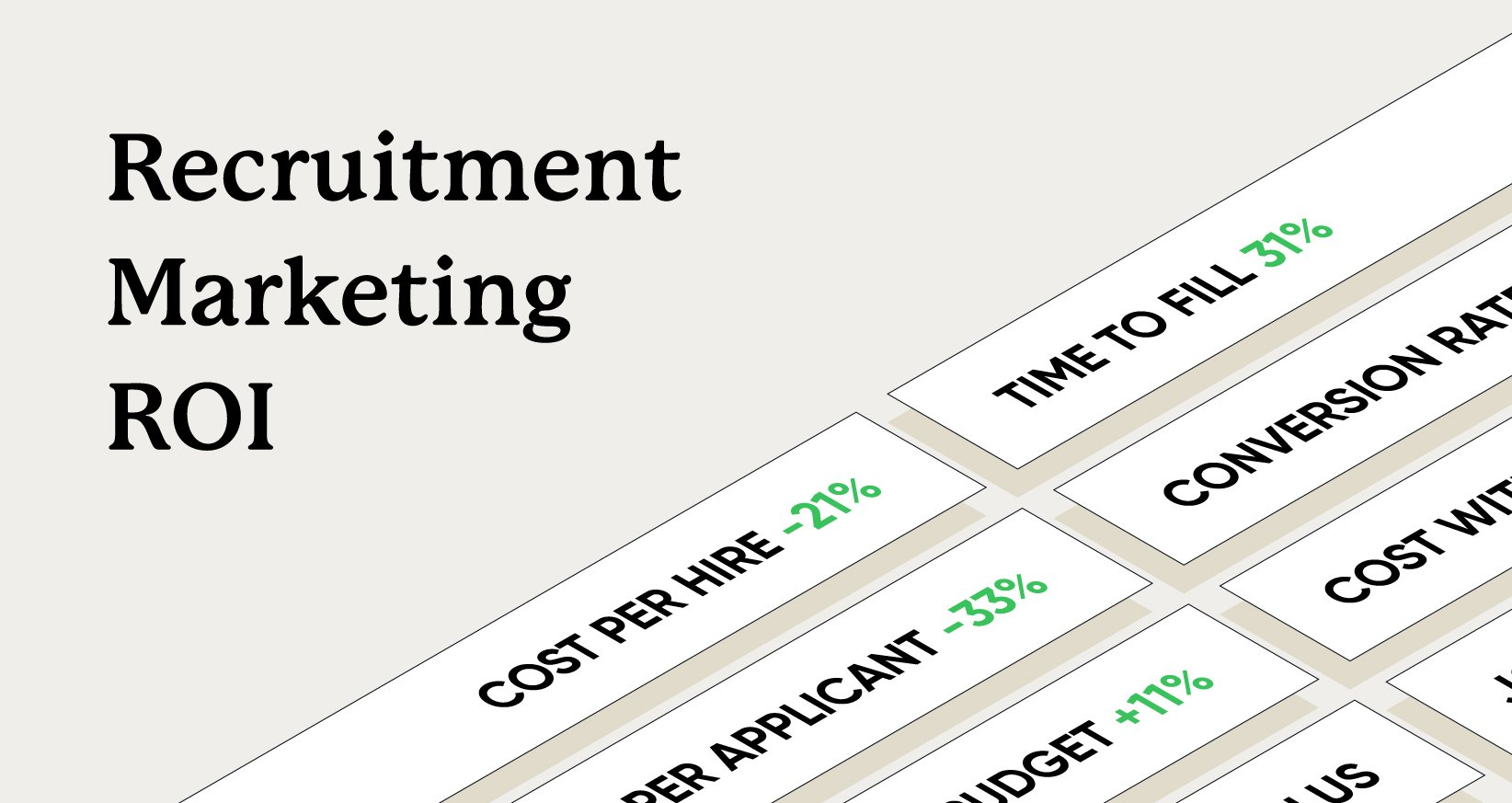Technology moves fast, and these days so does recruitment. The introduction of recruitment marketing automation into the HR landscape, for instance, represented a big technological shift, and that's just one of a new of new concepts and ideas that are changing that ways in which businesses connect to new candidates. And of those emerging technologies, robotic process automation, or RPA, has direct applicability to the RM world. In short, RPA consists of software-based robots, or “bots,” that can be configured to reproduce formerly human-centered computer activities like clicking on a drop-down menu and making a selection. This is revolutionary, since, before now, the only way to automate a sequence of tasks was to use an API or another back-door method to connect to the software, and these frequently required coding skills. Unsurprisingly, the effects on talent acquisition can be considerable:
- Job Advertising Automation - 7X faster job advertising process
- Recruitment Data Collection - 573% average improvement in data collection time
- A scalable RMA strategy - 10x reduction in costs with recruitment marketing activities
The fact that you can now automate even the most legacy software based process means your human team members can spend their precious time and energy on the truly human-centric activities that form the core of HR. Things like preparing a candidate for an upcoming interview, coaching someone on proper resume etiquette, or responding to the more challenging inquiries sent in via the Facebook page. And in a world where even a half hour spent on rote, repetitive tasks means that awesome candidate may walk to your competitor, that’s huge. How is this automation functionality making waves in RM already? We’ve compiled the following list of the top 3 ways RPA that will change the face of recruitment marketing now, and as we dive deeper into the 21st-century.
#1: Spreading Your EB Farther and Wider
With the increasing importance of social media to RM campaigns, it’s vitally important to remember this piece of your strategy and give it the attention it deserves. And a key point to realize is that not all platforms have easy to access APIs or other integrations. Even the most robust recruitment marketing automation solution may not be able to get your posts scheduled on Github, Reddit, or StackExchange.
That means the only way to post these updates is via the user interface. And that’s exactly where RPA comes to the rescue. Since this tool lets you configure bots to mimic the actions of a human, you can schedule your bots to do just that, whenever you need them to. Want that post to go live on StackExchange in time for morning coffee in Budapest, even though you’re in San Fransisco? No problem.
When it comes to spreading your EB and EVP on these niche sites, this is a huge win. Since RPA bots are effectively a recording of your mouse moves, clicks, and even data entry, they allow the automation of posting to even the most obscure niche channel. And that means your message, and your job postings, will be in front of the right people, no matter where they are or when they’re online.
Bear in mind, we're not just talking hypothetically. This technology is a major presence right now, and it's already helping businesses to improve their recruitment. Genpact, for instance, used SmartDreamers' RPA-powered software achieved a 736,599 reach among bilingual and trilingual candidates, all while spending 80% less time promoting jobs across the web.
.png?width=1000&name=What%20is%20RPA%E2%80%99s%20Role%20in%20the%20Future%20of%20Recruitment%20Marketing-v2%20(1).png)
#2: Freeing Up Your Resources for Higher ROI Activities
By allowing you to automate the rote, repetitive tasks that seem to take up an inordinate amount of time and energy every day, RPA bots can free up your team to return to the activities that put a human face on your campaigns. Without the data entry, social media posting, and form email sending, things like one-on-ones with applicants, interview prep sessions, and phone calls with managers can take a front row seat again.
There will always be HR tasks and activities that require that human touch. Whether it’s because you have to be physically present to accomplish it, or because it just makes the candidate more comfortable when they can put a face and name on things. When you automate the stuff that doesn't require these "soft skills," you put HR teams in a stronger position to nurture leads and keep existing employees happy. This can actually be a huge value added proposition. Why? Because on average, every time an employee leaves, it takes 6-9 months of her salary to find a replacement. For example, if an employee making 40k a year jumps ship, that’s anywhere between $20-30,000 worth hiring and onboarding costs that were not previously anticipated. If you lose a higher level employee, then expect to pay more. The cost of turnover makes a dent in the bottom line, which means that any time you empower HR teams to focus on reducing turnover you absolutely should.
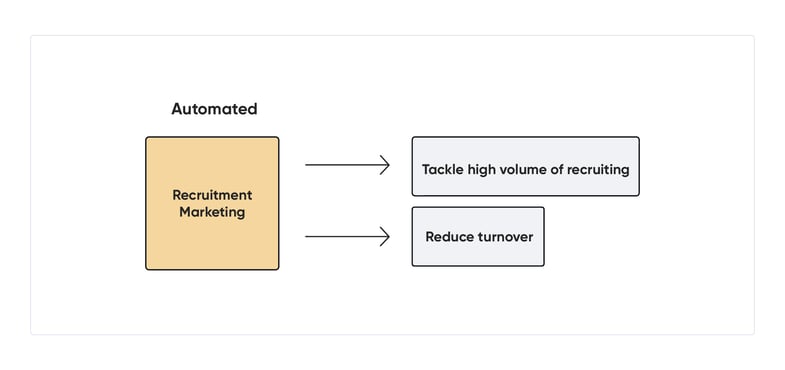
#3: Powering Chatbots
There is a subspecies of RPA bot known as a “chatbot.” These are exactly what they sound like, and you might be surprised to know that you’ve probably already interacted with one. The last time you visited your bank website, did you use the chat option for help? You know those first few questions they ask, name, account number, subject of your inquiry? Yep, that was likely a chatbot. They’re fantastic at answering simple, common questions and routing requests to the right department or representative for deeper investigation.
At first, the benefit to RM may not be crystal clear, but look at it like this—would you rather your team answer the same question for the 5th time that day, or coach a jittery candidate through interview prep? Or how about writing up last week’s company event for an exciting Facebook update post? Exactly. This technology can also help you screen applicants, giving you even further opportunities to free of recruiters' time.
Of all the emerging technologies of the early 21st-century, RPA stands to have the greatest impact on the HR world, and particularly on recruitment marketing. This is primarily due to the ability to automate those time-consuming, repetitive tasks that seem to eat up everybody’s day, yet don’t really further the team's goals. In order to get back to those high ROI activities that also affect your candidate’s journeys most directly, a smart implementation of RPA bots can be just the thing.

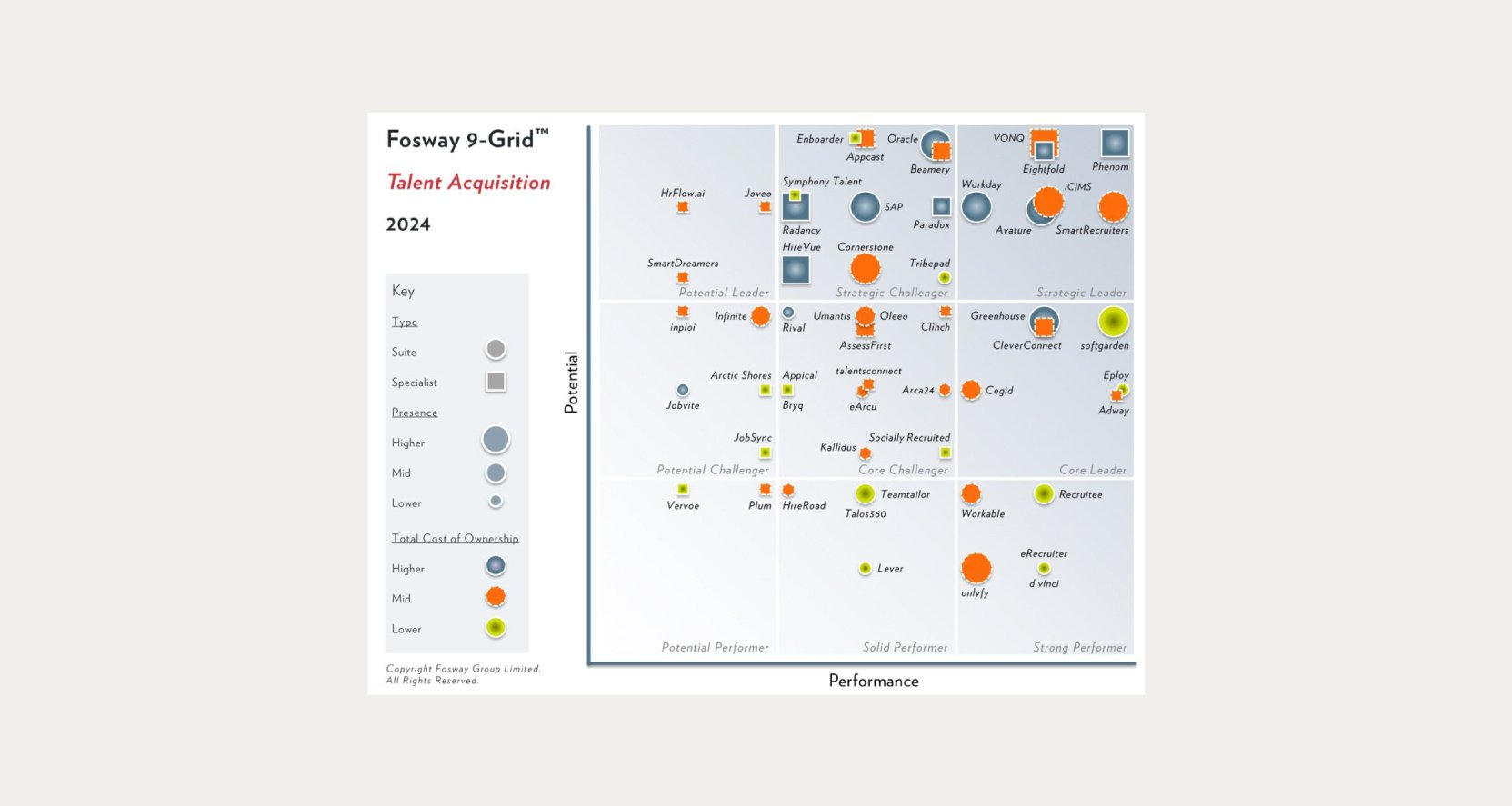

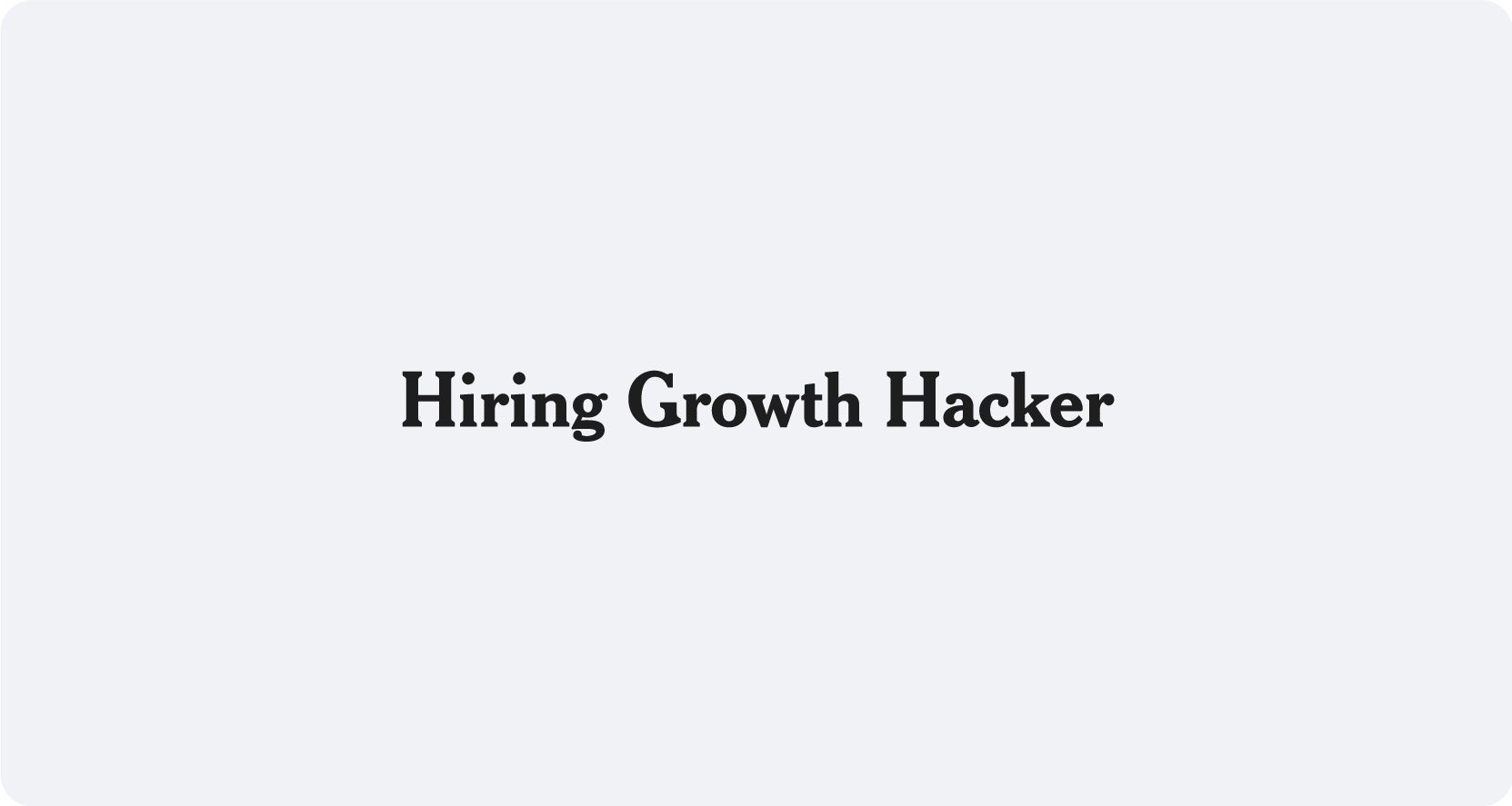

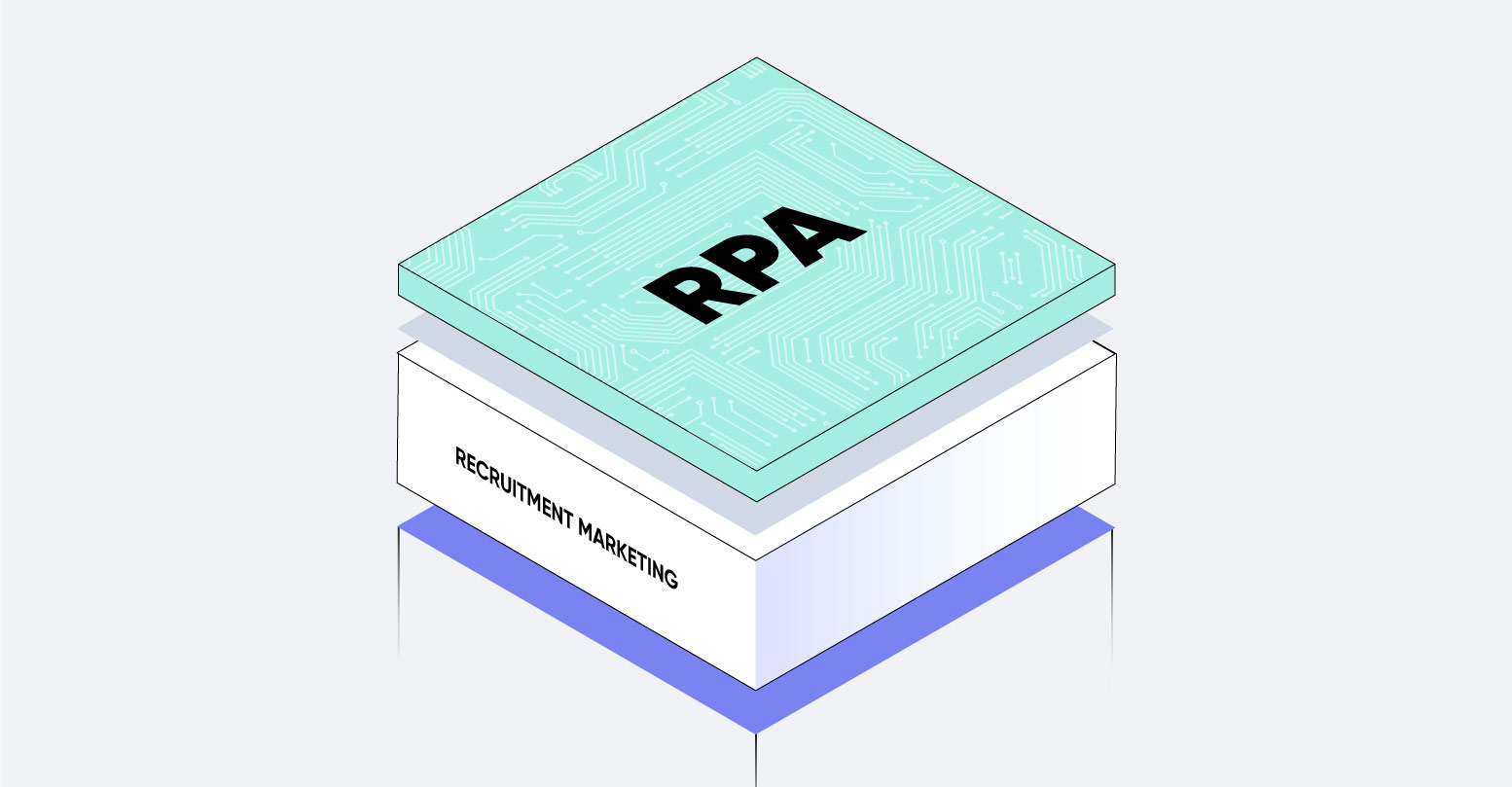
.png?width=1000&name=What%20is%20RPA%E2%80%99s%20Role%20in%20the%20Future%20of%20Recruitment%20Marketing-v1%20(1).png)
